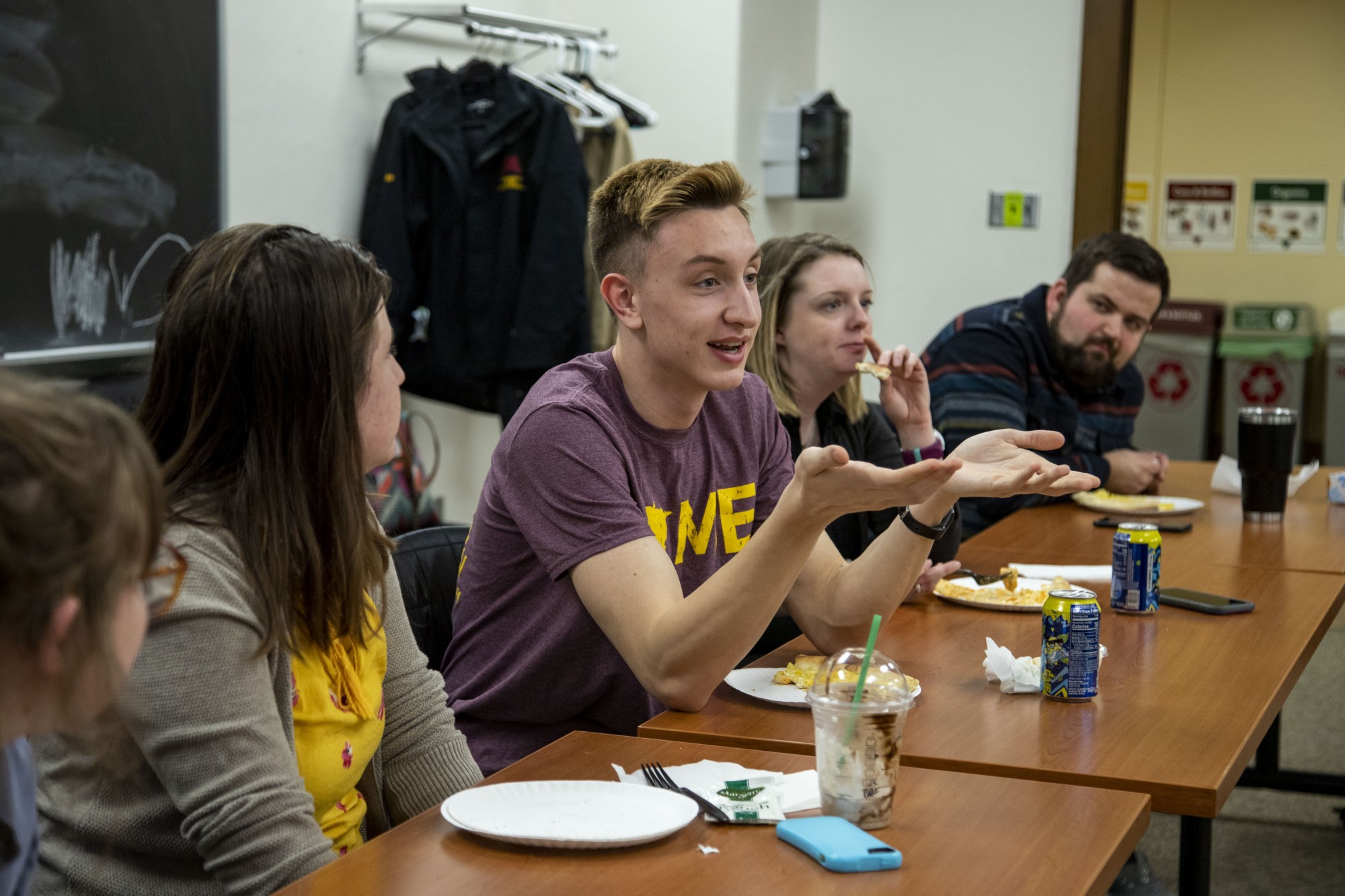In an effort to connect students from rural areas, a new University of Minnesota initiative is working to strengthen community for these students to connect with one another.
Many students from rural communities say they feel disconnected from others on the Twin Cities campus and don’t feel comfortable in an urban setting. Rural Community Connection, which started this spring, will hold monthly meetings for students to get together, de-stress and provide support.
Two University faculty members saw a need for connection among rural students, so they started to organize monthly meetings to spark conversations and think of ways the University could support rural students.
“I think often it’s an identity that’s forgotten about when we think about student groups and student identities as coming from this rural background,” said Thomas Van Norman, Land-Grant Legacy Scholars program coordinator and co-coordinator for the initiative.
Keelin Yenney, a CLA academic adviser and co-coordinator for the initiative, interviewed 10 students and worked on research to provide an in-depth look into students from rural areas. In these discussions, factors such as light pollution, noise pollution and an influx of people created barriers to students who are unfamiliar with the new surroundings.
Yenney also said that some rural students experience “academic imposter syndrome,” or the feeling of not belonging in an academic setting.
“I’ve never been surrounded by more people than I am right now, and that’s a really cool thing and I really love the energy here, but it’s just different,” Alesia Meulemans, a University product design freshman. “It’s just a cool ‘small-town-y’ kind of feeling to know that there’s someone out there who’s thinking about people who came from where I came from.”
Yenney and Van Norman hope to engage faculty and staff from rural areas to connect with these students to help build support moving forward.
“I know that there’s pockets of folks that are aware that this is an issue and are interested and aware in helping students, but I think with an institution with this size, it will be slow-moving sometimes to connect those pieces and to really get the ball rolling,” Yenney said.
Nicholas Potthoff, a freshman who lives in Bailey Hall, said his sense of belonging is shaped by his values and relationships linked through small-town values.
“Our experiences that we’ve grown up with shape who we are but don’t differentiate us,” Potthoff said.
The next Rural Community Connection meeting is on March 31.
“I think that it’s gonna be cool to find out where everyone is from and to see how everyone else is doing … sometimes it can feel like you’re in it alone,” Meulemans said.








